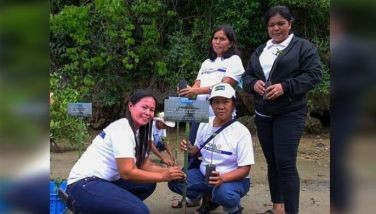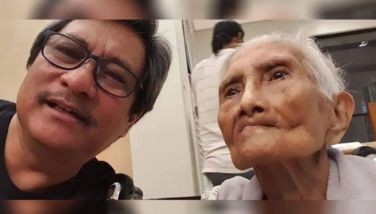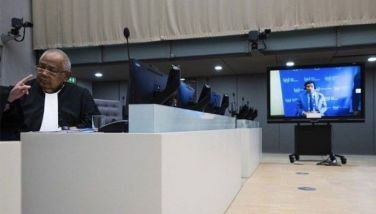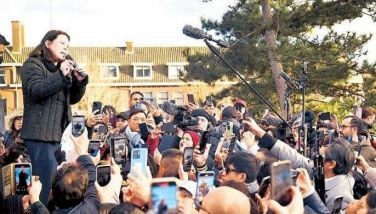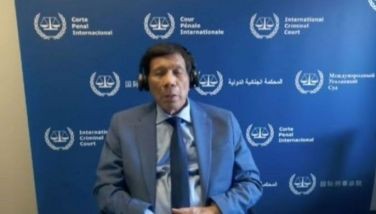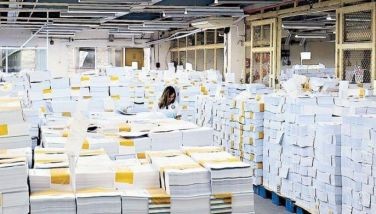Citing progress, WHO calls for new survey on public's view on COVID-19 jabs
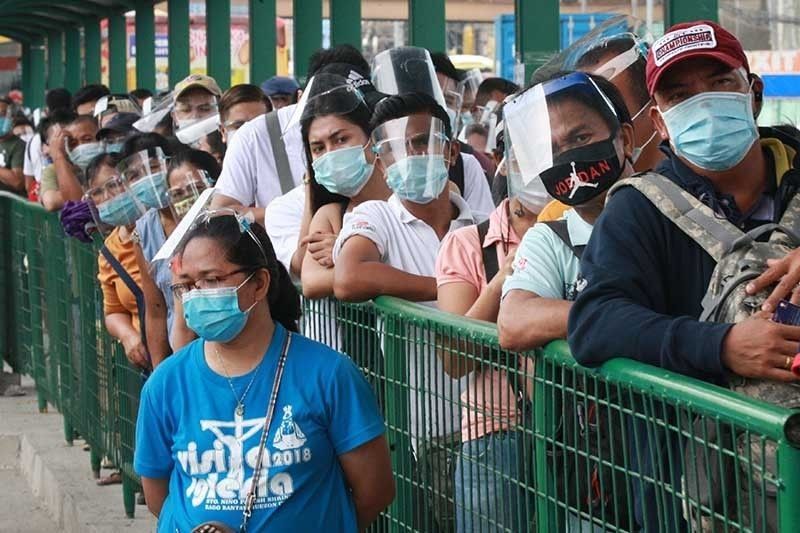
MANILA, Philippines — The World Health Organization's representative to the country called for a new round of surveys on the public's willingness to take COVID-19 vaccines, saying there had been significant developments since the last was held.
Dr. Rabindra Abeyasinghe on Tuesday reacted to a recent finding by Pulse Asia that only 32% of Filipinos would allow themselves to be inoculated, while 47%, concerned on jabs' safety, said they are not inclined to be vaccinated.
The survey ran from November 23 to December 2, before issues on the Duterte administration's vaccination program had surfaced, such as the botched Pfizer talks and the illegal Sinopharm inoculation of the president's security group, which critics warned could strain people's trust on the jabs.
But Abeyasinghe said it was done at a time when no drugmakers have applied yet to local regulators for emergency use.
"That question was asked in a space where nobody knew about the possibility of COVID-19 vaccines becoming available so soon," he said over Laging Handa briefing, "and about their safety and use in other [countries]. So we really need to ask this question again."
He recognized that there is "vaccine hesitancy" in the country, hence the need for transparency "that these vaccines are not authorized [or have] market authorization because they are still under the emergency use listing."
Immunization rates in the Philippines had seen a decline since 2017, when the Dengvaxia scandal stirred unsubstantiated fears despite no established links to date that deaths had resulted from the dengue vaccine.
RELATED: Dengvaxia scandal haunts Philippines' COVID-19 vaccine rush
In the Pulse Asia survey, Class E yielded the most number of unwilling to take the jabs at 56%, followed by Class D at 46% and ABC at 43%.
Some 84% among those who would not be vaccinated also said they were unsure of the vaccines' safety. For this, health officials have vowed to launch a massive information drive to campaign for the jabs' safety and efficacy.
The Duterte administration has so far secured 30 million doses of Covavax and 25 million doses of Sinovac, along with 2.6 million from AstraZeneca as a donation from the private sector.
But many, including lawmakers, have questioned the seeming preference of the administration for the Chinese-made Sinovac despite only at 50% efficacy and the second most expensive among the jabs being eyed.
Abeyasinghe was asked in the same Laging Handa briefing if the Sinovac would be safe to use in the Philippines but offered no direct answer, aside from that the jab is still under review with other candidate vaccines by the WHO.
"I would not refer to each of the individual brands of vaccines because many of these vaccines are currently still under evaluation by the national regulatory authorities and by stringent regulatory authorities in countries that are recognized to have these," he said.
Pfizer, AstraZeneca and Russia's Gamaleya are so far the drugmakers that have sent their EUA applications to the Food and Drug Administration.
Officials at the FDA have said that it may take three to four weeks to review and approve the said bid for emergency use, but the administration has said too that some 50,000 may be inoculated by February as part of its goal to vaccinate 50 to 70 million in 2021 alone.
- Latest
- Trending














